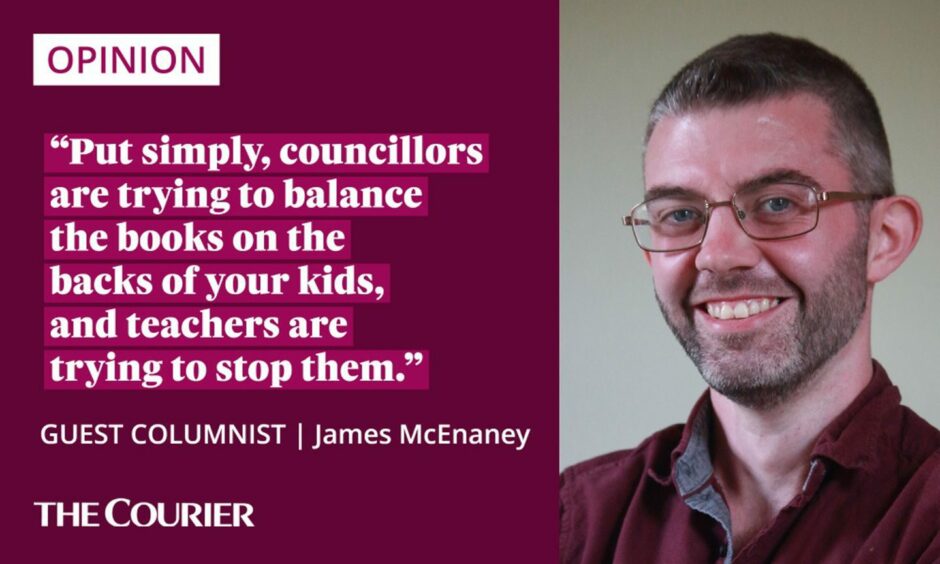On June 22, teachers in Dundee secondary schools are going out on strike.
For parents this will probably feel like the last thing they need.
And many will be wondering what has sparked this concentrated local action so close to the summer holidays.
The dispute isn’t about pay, or class contact time, or teaching resources, or behaviour, or holidays. It’s about the middle-management structures of secondary schools in the area.
And while that may sound like a dry, technical change with little real impact on education, the reality is very different.

The council is planning to impose a faculty structure on secondary schools.
This means doing away with the current system of subject-specialist department heads and replacing them with a smaller number of faculty heads responsible for several different subject areas at once.
These new roles would therefore see expert heads of department replaced by what are effectively line-manager positions.
A teacher working under a head of department could always seek advice and support safe in the knowledge that their boss knows plenty about teaching their subject.
Those going to a faculty head for help don’t have those same guarantees.
And it is that change that threatens to do significant damage not just to teachers, but also to their pupils – your kids.
Pupils will lose support
The bureaucrats at the council clearly think that subject knowledge doesn’t really matter in leadership positions.
They are completely wrong.
This is most obviously the case when it comes to classes in S4-6.
Here, assessment and exam arrangements can be very different from subject to subject, and a secure knowledge of all the ins and outs of those courses is crucial.
But it’s not just that the exams are different.
The most effective teaching approaches can also vary between subjects.
And what works in one discipline might not be anything like as powerful in another.
Even the most talented and diligent faculty head couldn’t be expected to become an expert in courses they have never taught and subjects for which they are not qualified.
And this leaves a significant gap in the support they can offer staff.
The knock-on effect here is teachers finding it even harder to support their pupils, who are the ones that lose out most.
Cutting costs at heart of Dundee teachers strike
There are other problems too.
In parts of Scotland that already use faculties, the model has led to absurd subject combinations that magnify the issues (art, music, technical, home economics and PE all being grouped together is a particular favourite of mine) while the subsequent increased workload and reduction in career development opportunities for teachers has also damaged morale and encouraged some to leave the profession altogether.
The council expects you to believe that these changes are about improving education in the area and boosting the grades of pupils.
But you hardly need to be an expert to see through those claims.
This isn’t about improving education – it’s about cutting costs.
Put simply, councillors are trying to balance the books on the backs of your kids, and teachers are trying to stop them.
👩🏫📣❗Huge news out of Dundee: 88% of secondary teachers vote to take strike action in latest statutory ballot!
Time for the council to listen and withdraw their plans to remove principal teachers from schools ⏰ https://t.co/OZf7pWPgQa
— Amy Moran (@amy_moran__) May 11, 2022
As we emerge from the pandemic we should be focused on ensuring that our children get the best possible education.
These proposals do the opposite.
If the council’s plans go ahead it will be terrible news for young people, whose learning conditions will be fundamentally degraded.
That’s why Dundee teachers are right to go on strike in defence of their pupils.
And why everyone who cares about the quality of education in Dundee’s schools should support them.
James McEnaney is a former English teacher, lecturer, journalist and the author of ‘Class Rules: the Truth about Scottish Schools’.












Conversation